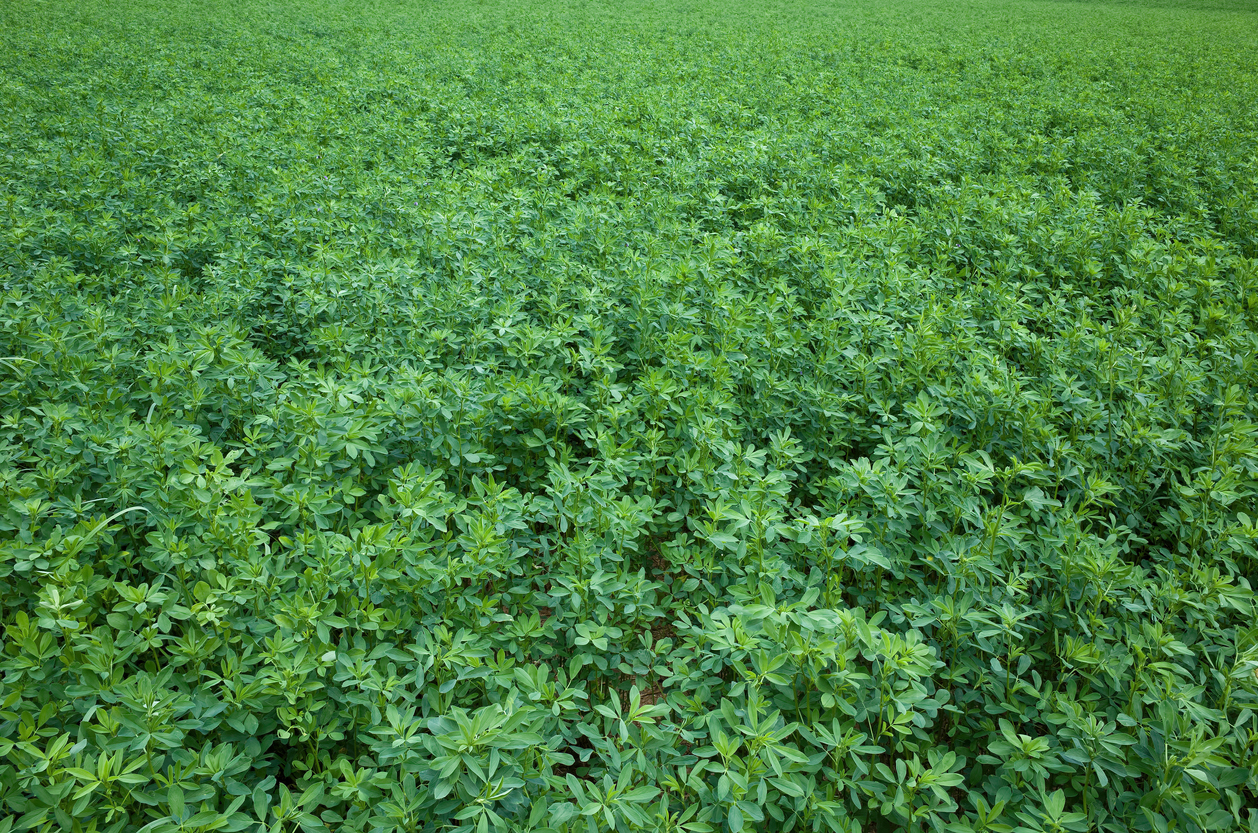
Interplay between miR156/SPL13 and DFR/WD40–1 Affects Drought Tolerance in Alfalfa
October 30, 2019| |
Developing drought tolerance in alfalfa is vital for the crops's sustainable production. Thus, scientists from University of Western Ontario and Agriculture and Agri-Food Canada studied the interplay between miR156/SPL13 and DFR/WD40–1 to regulate drought tolerance in alfalfa. Their findings are published in BMC Plant Biology.
In a previous study, the researchers found that miR156 is involved in drought tolerance but the mechanism and genes involved in the process were unidentified. In their latest study, they found that the interaction between miR156/SPL13 and WD40–1/DFR regulate drought stress by coordinating gene expression with metabolite and physiological strategies. Low to moderate levels of miR156 overexpression led to suppression of SPL13 and boosted WD40-1 to adjust DFR expression for improved production of anthocyanin. This adjustment, together with other stress mitigating metabolites and physiological reactions, led to enhanced drought tolerance.
The results of the study revealed that moderate relative miR156 transcript levels could improve drought tolerance in alfalfa by silencing SPL13 and increasing WD40–1 expression, while higher miR156 overexpression leads to drought susceptibility.
Read the research article in BMC Plant Biology.
| |
You might also like:
- Alfalfa (Medicago sativa) GM Events - GM Approval Database
- Biotech Crop Annual Updates - Alfalfa
- Soybean Gene Confers Alkaline Stress Resistance in Alfalfa
Biotech Updates is a weekly newsletter of ISAAA, a not-for-profit organization. It is distributed for free to over 22,000 subscribers worldwide to inform them about the key developments in biosciences, especially in biotechnology. Your support will help us in our mission to feed the world with knowledge. You can help by donating as little as $10.
-
See more articles:
-
News from Around the World
- 'Oppressively burdensome' Gov't Regulations Impede Longed-for Approval of Golden Rice
- Biotech Soybeans Now Cover 50% of the World's Biotech Crop Area
- Niger Parliament Approves National Biosafety Law
- International Research Team Traces Family Tree of More than 1,100 Green Plants Over 1 Billion Years
- Scientists 'Vaccinate' Plant to Boost Defense Against Pest
- Young NZ Scientists Appeal for Overhaul of GM Research Regulations
- Study Finds Organic Farming is Worse for Climate Change
-
Research Highlights
- Interplay between miR156/SPL13 and DFR/WD40–1 Affects Drought Tolerance in Alfalfa
- Developing Ozone Tolerance in Tomato Might Interfere with Plant Disease Management
-
Plant
- CRISPR-Cas9 Used to Reduce Seed Dormancy in Rice
- Harvard, MIT Experts Develop New Gene Editing Technology
-
Read the latest: - Biotech Updates (February 11, 2026)
- Gene Editing Supplement (January 28, 2026)
- Gene Drive Supplement (February 22, 2023)
-
Subscribe to BU: - Share
- Tweet

